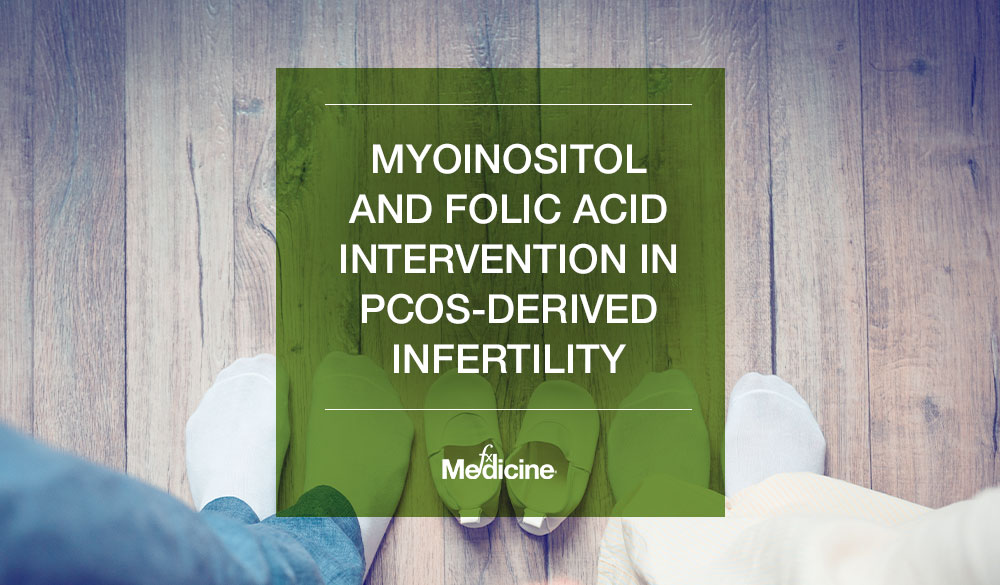The leading diagnosis underpinning menstrual disorders, ovarian dysfunction and infertility in women is polycystic ovary syndrome (PCOS). It is estimated that up to 15% of women may be affected by PCOS within their reproductive life. The most common clinical features of PCOS relating largely to aberrant hormonal dysfunction are hyperandrogenism, chronic anovulation, polycystic ovary presentation on ultra sound images, and skin issues such as acne, hirsutism and seborrhoea.
What’s now understood is that insulin resistance plays a key role in the clinical development of PCOS in almost all sufferers. This means targeting insulin sensitivity has become of great interest in the quest to moderate PCOS. Drugs, such as metformin, have been investigated for this but, often, have shown unwanted side-effect profiles. This has led researchers and clinicians to seek safer, more natural alternatives.
Myoinositol is the most common form of inositol in nature, found in fruits, beans, corns and nuts. Studies have shown that the inositol molecule may be directly involved in insulin cellular signalling and it has a well-documented safety profile. This has led to further exploration of myoinositol as an ‘insulin sensitiser agent’ for PCOS patients, as a strategy to restore their metabolic profile, and thus impact ovulation for those patients experiencing infertility.
In an observational study published in the International Journal of Endocrinology in 2016, the use of myoinositol combined with folic acid was shown to be a safe and promising tool in the effective improvement of symptoms and infertility for patients with PCOS.
The study recruited 3602 infertile women and were administered a daily dose of 4000mg of myoinositol and 400mcg of folic acid, in divided doses, for 2- 3 months. Within the study, a subgroup of 32 patients had hormonal values tested for testosterone, free testosterone and progesterone at baseline and following treatment.
Results showed that, during the study, 70% of the women had a restoration of ovulation and 545 women fell pregnant, yielding a 15.1% pregnancy rate for the myoinositol and folic acid intervention. The study also demonstrated that, in the tested subgroup, testosterone levels changed from 96.6ng/mL to 43.3ng/mL and progesterone from 2.1ng/mL to 12.3ng/mL (p < 0.05) after 12 weeks of treatment.
The authors concluded that not only was myoinositol and folic acid a safe intervention, with no reported side-effects, but they also noted that the achieved pregnancy rates are at least equivalent, or even superior, to those reported by the use of the leading drug therapy metformin. This study adds to the growing body of evidence demonstrating the safety and efficacy of myoinositol as a metabolic supportive therapy for patients with PCOS.
Reference
- Regidor PA, Schindler AE. Myoinositol as a Safe and Alternative Approach in the Treatment of Infertile PCOS Women: A German Observational Study. Int J Endocrinol 2016; 2016:9537632 [Full Text]
DISCLAIMER:
The information provided on FX Medicine is for educational and informational purposes only. The information provided on this site is not, nor is it intended to be, a substitute for professional advice or care. Please seek the advice of a qualified health care professional in the event something you have read here raises questions or concerns regarding your health.



